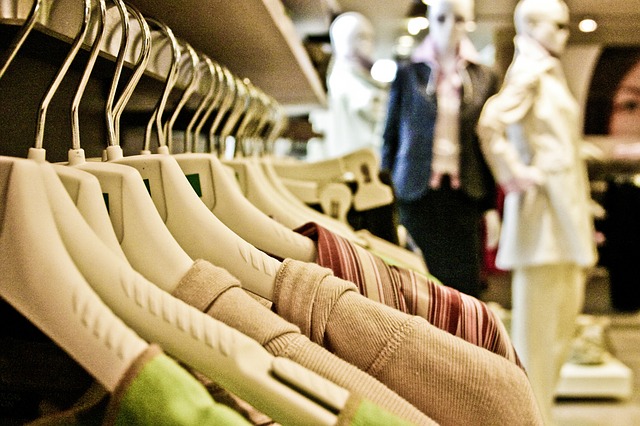- Calls to this hotline are currently being directed to Within Health, Fay or Eating Disorder Solutions
- Representatives are standing by 24/7 to help answer your questions
- All calls are confidential and HIPAA compliant
- There is no obligation or cost to call
- Eating Disorder Hope does not receive any commissions or fees dependent upon which provider you select
- Additional treatment providers are located on our directory or samhsa.gov
Shopping Addiction and Eating Disorders During the Holiday Season

Contributor: Crystal Karges, MS, RDN, IBCLC, Special Projects Coordinator at Eating Disorder Hope/Addiction Hope
Individuals who struggle with and are in recovery from an eating disorder may be prone to developing another type of mental illness or disorder, such as substance abuse or a shopping addiction.
Because mental illnesses and addictive type disorders may have similar root causes, such as genetic influences and behavioral/personality traits, it is not uncommon for more than one of these disorders to develop or occur alongside each other.
A shopping addiction can be severely problematic if not dealt with appropriately and professionally. Many individuals who struggle with a shopping addiction spend money beyond what they can reasonably afford, which often leads to unnecessary purchases, hoarding of items, such as clothes, shoes, household goods, etc., and ultimately, the destruction of one’s finances.
Surmounting debt from a shopping addiction can handicap a person’s ability to live and thrive and life, and for these reasons, a shopping addiction should be approached professionally.
The holidays are often a guise for those dealing with a shopping addiction, as it seems justified to spend excessive amounts of money on gifts, food, drinks and the like. However, if you are in recovery from an eating disorder and find yourself turning towards habits and behaviors that are parallel to a shopping addiction, you may need to reevaluate your choices.
Look for Similarities
 Often times, individuals struggling with a shopping addiction struggle with obsessive-compulsive behaviors that may be similarly observed in eating disorder behaviors. There may also be a sense of a “high” that is attained through “purchasing”, similar to what a person with anorexia may feel when restricting, or an individual with bulimia may feel when binging/purging.
Often times, individuals struggling with a shopping addiction struggle with obsessive-compulsive behaviors that may be similarly observed in eating disorder behaviors. There may also be a sense of a “high” that is attained through “purchasing”, similar to what a person with anorexia may feel when restricting, or an individual with bulimia may feel when binging/purging.
Looking for commonalities between eating disorders and shopping addiction is crucial, particularly during the holiday season when these types of behaviors can go under the radar.
If you have been in recovery from an eating disorder and have found yourself dealing with behaviors associated with a shopping addiction, be sure to reach out for the necessary and appropriate help you need to get these behaviors under control.
Community Discussion – Share your thoughts here!
What similarities do you think there are between eating disorders and a shopping addiction? What might be effective ways for managing urges to shop excessively during the holiday season while in eating disorder recovery?
 Crystal is a Masters-level Registered Dietitian Nutritionist (RDN) with a specialty focus in eating disorders, maternal/child health and wellness, and intuitive eating. Combining clinical experience with a love of social media and writing, Crystal serves as the Special Projects Coordinator for Eating Disorder Hope/Addiction Hope, where her passion to help others find recovery and healing is integrated into each part of her work.
Crystal is a Masters-level Registered Dietitian Nutritionist (RDN) with a specialty focus in eating disorders, maternal/child health and wellness, and intuitive eating. Combining clinical experience with a love of social media and writing, Crystal serves as the Special Projects Coordinator for Eating Disorder Hope/Addiction Hope, where her passion to help others find recovery and healing is integrated into each part of her work.
As a Certified Intuitive Eating Counselor, Crystal has dedicated her career to helping others establish a healthy relationship with food and body through her work with EDH/AH and nutrition private practice.
The opinions and views of our guest contributors are shared to provide a broad perspective of eating disorders. These are not necessarily the views of Eating Disorder Hope, but an effort to offer discussion of various issues by different concerned individuals.
We at Eating Disorder Hope understand that eating disorders result from a combination of environmental and genetic factors. If you or a loved one are suffering from an eating disorder, please know that there is hope for you, and seek immediate professional help.
Last Updated & Reviewed By: Jacquelyn Ekern, MS, LPC on November 23, 2015
Published on EatingDisorderHope.com

The EatingDisorderHope.com editorial team comprises experienced writers, editors, and medical reviewers specializing in eating disorders, treatment, and mental and behavioral health.

